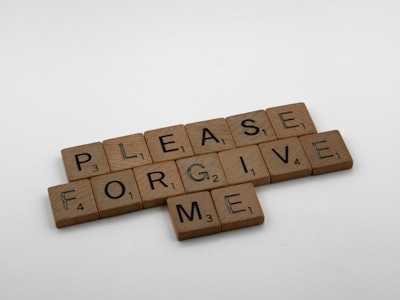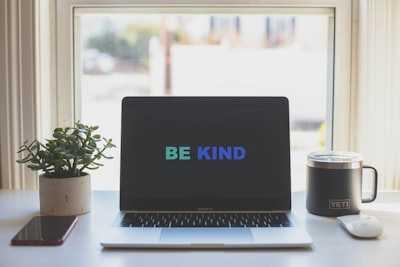Explore the World's Best Ideas
Join today and uncover 100+ curated journeys from 50+ topics. Unlock access to our mobile app with extensive features.
The Power of Guilt
As an emotion, guilt has a lot of power. Guilt helps you acknowledge your actions and fuels your motivation to improve your behavior. It might also lead you to fixate on what you could have done differently.
Though guilt can sometimes promote positive growth, it can linger and hold you back — long after others have forgotten or forgiven what happened.
35
199 reads
Name Your Guilt
Like other emotions, unaddressed guilt can build and intensify, making you feel worse over time.
- Set aside some quiet time for yourself.
- Bring along a journal to keep track of your thoughts.
- Say to yourself, or write down, what happened: “I feel guilty because I shouted at my kids.”
- Mentally open the door to guilt, frustration, regret, anger, and any other emotions that might come up. Journaling can help.
- Sit with those feelings and explore them with curiosity instead of judgment.
27
157 reads
Explore the Source of Guilt
Before you can successfully navigate guilt, you need to recognize where it comes from.
Some common causes of guilt include:
- surviving trauma or disaster;
- conflict between personal values and choices you’ve made;
- mental or physical health concerns;
- thoughts or desires you believe you shouldn’t have;
- taking care of your own needs when you believe you should focus on others.
25
135 reads
Apologize and Make Amends
A sincere apology can help you begin repairing damage after a wrongdoing. To make an effective apology, you’ll want to:
- acknowledge your role
- show remorse
- avoid making excuses
- ask for forgiveness
The most heartfelt apology means nothing if you never do things differently going forward. Making amends means committing to change. After apologizing, you might demonstrate your desire to change by asking “What can I do to help?” or “How can I be there for you?”
24
101 reads
Learn From the Past
You can’t rewrite events by replaying scenarios with different outcomes, but you can always consider what you’ve learned:
- What led to the mistake? Explore triggers that prompted your action and any feelings that tipped you over the edge.
- What would you do differently now?
- What did your actions tell you about yourself? Do they point to any specific behaviors you can work on?
25
115 reads
Practice Gratitude
It’s pretty common to feel guilty over needing help when you’re coping with challenges, emotional distress, or health concerns.
Instead of feeling guilty when you struggle, cultivate gratitude by:
- thanking loved ones for their kindness;
- making your appreciation clear;
- acknowledging any opportunities you’ve gained as a result of their support;
- committing to paying this support forward once you’re on more solid ground.
27
163 reads
Forgive Yourself
Self-forgiveness is a key component of self-compassion. When you forgive yourself, you acknowledge that you made a mistake, like all other humans do.
Self-forgiveness involves four key steps:
- Take responsibility for your actions.
- Express remorse and regret without letting it transform into shame.
- Commit to making amends for any harm you caused.
- Practice self-acceptance and trust yourself to do better in the future.
30
137 reads
Talk with A Therapist
Severe or persistent guilt doesn’t always lift easily.
Over time, guilt can affect relationships and add stress to daily life. It can also play a part in sleep difficulty and mental health conditions. Or it can lead to coping methods, like substance use.
A therapist can offer guidance by helping you identify and address causes of guilt, explore effective coping skills, and develop greater self-compassion.
19
109 reads
IDEAS CURATED BY
Claudia Florescu's ideas are part of this journey:
Learn more about personaldevelopment with this collection
How to delegate tasks efficiently
How to use technology to your advantage
How to optimize your work environment
Related collections
Similar ideas
1 idea
Get Over Guilt with These Steps
healthline.com
9 ideas
How to Deal With the Guilt You Feel During the Pandemic
verywellmind.com
18 ideas
Read & Learn
20x Faster
without
deepstash
with
deepstash
with
deepstash
Personalized microlearning
—
100+ Learning Journeys
—
Access to 200,000+ ideas
—
Access to the mobile app
—
Unlimited idea saving
—
—
Unlimited history
—
—
Unlimited listening to ideas
—
—
Downloading & offline access
—
—
Supercharge your mind with one idea per day
Enter your email and spend 1 minute every day to learn something new.
I agree to receive email updates








